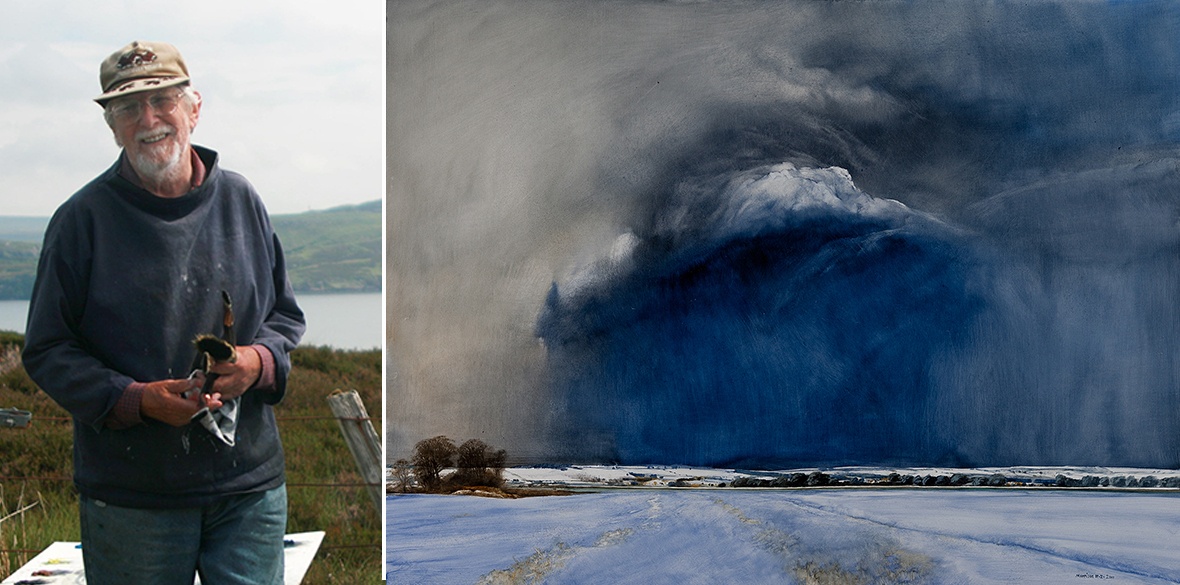This is the last article you can read this month
You can read more article this month
You can read more articles this month
Sorry your limit is up for this month
Reset on:
Please help support the Morning Star by subscribing here
ANTHONY BAXTER lives in Montrose and makes films about his neighbours.
There’s the billionaire bully and his belligerent tribe of dune-wreckers, a community of harassed but heroic crofters and a painter, James Morrison, who won’t paint people.
In this film on the artist, Baxter takes time off from his tidy line of agit-prop political protest to explore creativity and death in the work of the reclusive landscape artist.
Morrison used art to escape from a life in the shipyards and quickly developed a technique to satisfy the middle-class galleries.
With a tangible glee that is downright inspiring to witness, he brushes large canvasses with a single colour and, then, working with progressively smaller brushes, he points up enough detail to stabilise the colour field into representative art.
He works outdoors and what he paints could be Glasgow tenements, the landscapes of Angus or the Arctic.
There is little more to say and it is a tribute to Baxter’s narrative skill that he keeps you interested. He has a real knack for allowing people to reveal themselves in unguarded moments and the political film-maker’s desire to persuade.
This unfolds as a series of quotes from great artists — Cezanne, Matisse and Manet — that only apply to Morrison’s work in a spurious way.
The artists of French Realism and the Hague school all saw their work as part of a social revolution that included working people. Morrison, explicitly, does not. He wants to make “no social statement,” he says.
The northern, Calvinist artist he resembles in his Scottish and Arctic work is Caspar David Friedrich, the “spiritual” and melancholic darling of the Nazis.
Morrison is losing his sight and dies before the film is complete.
Following his story, Baxter has composed a handsome valediction, an emotional narrative that is moving and human. The BBC will broadcast a shortened version but I recommend the visual and musical luxury of the full feature.
But watch with care. It is a tasteful film, punctuated by remarkable archive of Joan Eardley and some winsome animation that uses a smokescreen of arty platitude to avoid the searching questions.
Screening information: modernfilms.com/eyeofthestorm.
Also available here at £7.99.








